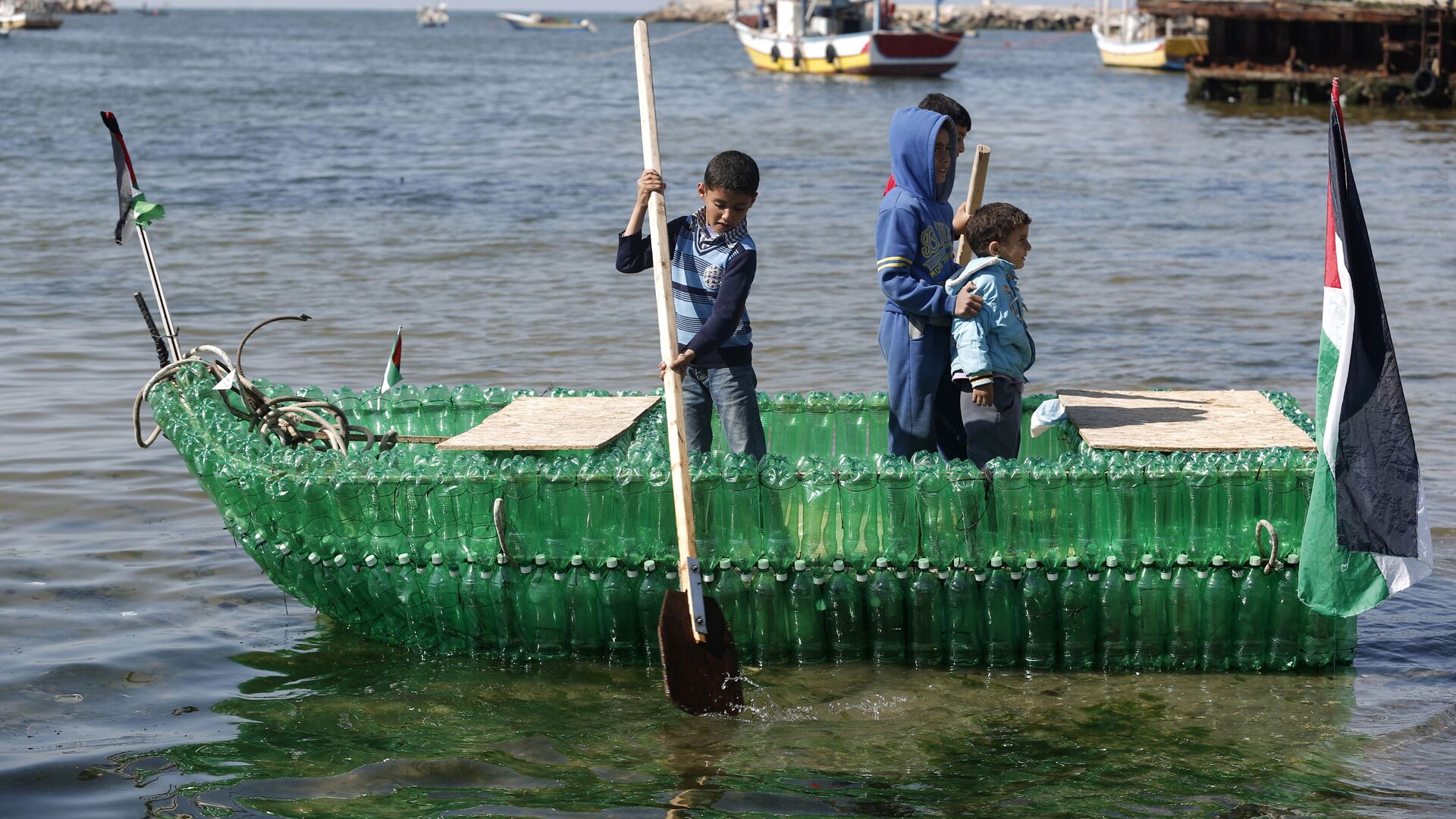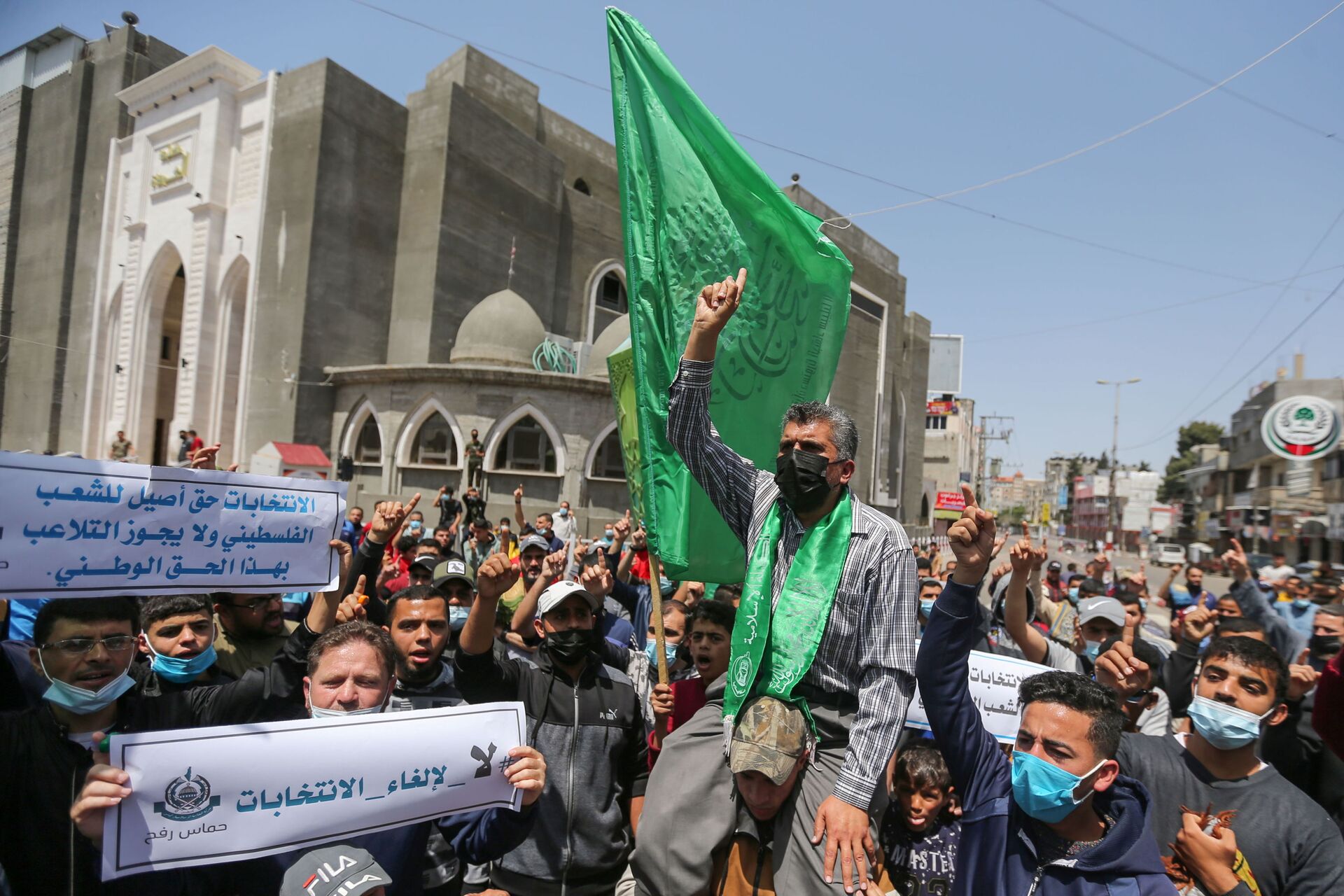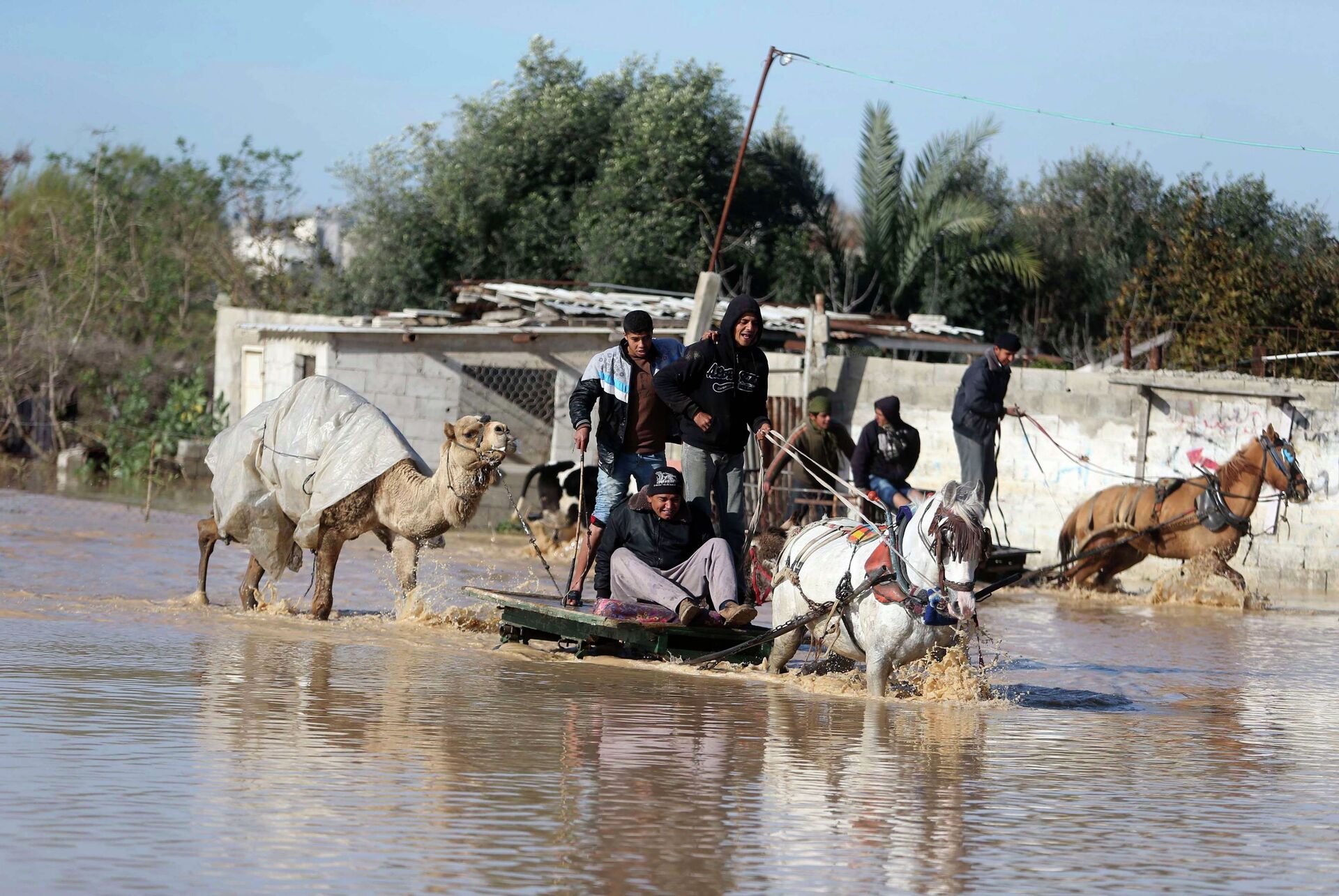https://sputnikglobe.com/20211104/water-in-gaza-is-scarce--polluted-with-no-change-on-the-horizon-says-expert-1090466970.html
Water in Gaza is Scarce & Polluted With No Change on the Horizon, Says Expert
Water in Gaza is Scarce & Polluted With No Change on the Horizon, Says Expert
Sputnik International
The coastal aquifer that Gazans rely on for water is depleted and contaminated, thereby forcing the local population to look for desalination solutions. But... 04.11.2021, Sputnik International
2021-11-04T07:26+0000
2021-11-04T07:26+0000
2021-11-04T07:26+0000
middle east
israel
gaza strip
palestinians
https://cdn1.img.sputnikglobe.com/img/102131/39/1021313960_0:160:3073:1888_1920x0_80_0_0_9ba1cff762f83a889b33bb489296b9ae.jpg
At the beginning of October, the Euro-Mediterranean Human Rights Monitor and the Global Institute for Water, Environment, and Health issued a statement saying that 97 percent of all water in the Gaza Strip was unfit for consumption.The NGOs pinned the blame on the Israeli blockade, in place since 2007, following the takeover of the Gaza Strip by Hamas, an Islamic group deemed a terrorist organisation by Tel Aviv. And they accused Israel of contaminating the water of the enclave and letting its residents "witness the slow poisoning of their children and loved ones".Harmful PracticesBut Kamel Abu Daher, an environmental and water expert at Gaza's Islamic University, says that Israel is far from being the only one responsible for the current mess.Those "harmful practices" include planting trees in sandy areas that require large quantities of water, opening up chalets and swimming pools and digging of private wells that are poorly controlled.Yet, it is not only about the scarcity of water resources. The quality of groundwater is also deteriorating. Abu Daher says that over time it has become saltier and now contains pollutants such as nitrates and chloride, whose levels exceed those specified by the World Health Organisation.Unlicensed, UnregulatedThe dire situation surrounding the enclave's groundwater has prompted the international community to invest in the establishment of three desalination plants.The ambitious project, with a price tag of more than $560 million and that will desalinate 100 million cubic metres of water, will only be completed in 2022, but doubts run high as to whether it will be enough to meet the demands of Gaza's more than two million people.For years, residents of the enclave have taken matters into their own hands, creating more than 220 private desalination plants, 70 percent of which are unlicensed, uncontrolled, and provide a substandard quality of water.The crisis is already affecting Gazans. Recent reports have indicated that desalinated and poorly treated groundwater are the primary cause of many malaises in the Strip. Elevated nitrate levels lead to hypertension and renal failure, while infant diarrhoea, salmonella, and typhoid fever have become a rather common phenomenon.And the trouble is, says Abu Daher, that the situation is only expected to get worse. Nevertheless, he is optimistic that the crisis can be managed if "tactical and strategic solutions" are implemented.
israel
gaza strip
Sputnik International
feedback@sputniknews.com
+74956456601
MIA „Rosiya Segodnya“
2021
News
en_EN
Sputnik International
feedback@sputniknews.com
+74956456601
MIA „Rosiya Segodnya“
Sputnik International
feedback@sputniknews.com
+74956456601
MIA „Rosiya Segodnya“
middle east, israel, gaza strip, palestinians
middle east, israel, gaza strip, palestinians
Water in Gaza is Scarce & Polluted With No Change on the Horizon, Says Expert
The coastal aquifer that Gazans rely on for water is depleted and contaminated, thereby forcing the local population to look for desalination solutions. But the problem is that the quality of that water is substandard as well.
At the beginning of October, the Euro-Mediterranean Human Rights Monitor and the Global Institute for Water, Environment, and Health issued a statement saying that
97 percent of all water in the Gaza Strip was unfit for consumption.The NGOs pinned the blame on the Israeli blockade, in place since 2007, following the takeover of the Gaza Strip by Hamas, an Islamic group deemed a terrorist organisation by Tel Aviv. And they accused Israel of contaminating the water of the enclave and letting its residents "witness the slow poisoning of their children and loved ones".
But Kamel Abu Daher, an environmental and water expert at Gaza's Islamic University, says that Israel is far from being the only one
responsible for the current mess."We are talking about a combination of natural and human causes", explained the expert. "The coastal aquifer, on which the residents of Gaza depend for water, suffers from significant depletion. It is caused not only by natural processes but also by the harmful practices of residents and officials".
Those "harmful practices" include planting trees in sandy areas that require large quantities of water, opening up chalets and swimming pools and digging of private wells that are poorly controlled.
Yet, it is not only about the scarcity of water resources. The quality of groundwater is also deteriorating. Abu Daher says that over time it has become saltier and now contains pollutants such as nitrates and chloride, whose levels exceed those specified by the World Health Organisation.
The dire situation surrounding the enclave's groundwater has prompted the international community to invest in the establishment of
three desalination plants.The ambitious project, with a price tag of more than $560 million and that will desalinate 100 million cubic metres of water, will only be completed in 2022, but doubts run high as to whether it will be enough to meet the demands of Gaza's more than two million people.
For years, residents of the enclave have taken matters into their own hands, creating more than 220 private desalination plants, 70 percent of which are unlicensed, uncontrolled, and provide a substandard quality of water.
"Residents of the Gaza Strip are trapped between two options, both of which are bad. The first is the use of unfit groundwater, and the second is the use of desalinated water that is also contaminated", said the expert.
The crisis is already affecting Gazans. Recent reports have indicated that desalinated and poorly treated groundwater are
the primary cause of many malaises in the Strip. Elevated nitrate levels lead to hypertension and renal failure, while infant diarrhoea, salmonella, and typhoid fever have become a rather common phenomenon.
And the trouble is, says Abu Daher, that the situation is only expected to get worse. Nevertheless, he is optimistic that the crisis can be managed if "tactical and strategic solutions" are implemented.
"The [Hamas] government can tighten its control over swimming pools and chalets that consume large amounts of water. They can also manage the desalination projects better so that they meet individuals' daily water consumption needs. They can close down unlicensed wells and distribute the water equally between people".
"But, more importantly, we also need to educate people and explain to them the threats of a depleted aquifer and what we, as residents can do to make a change".





